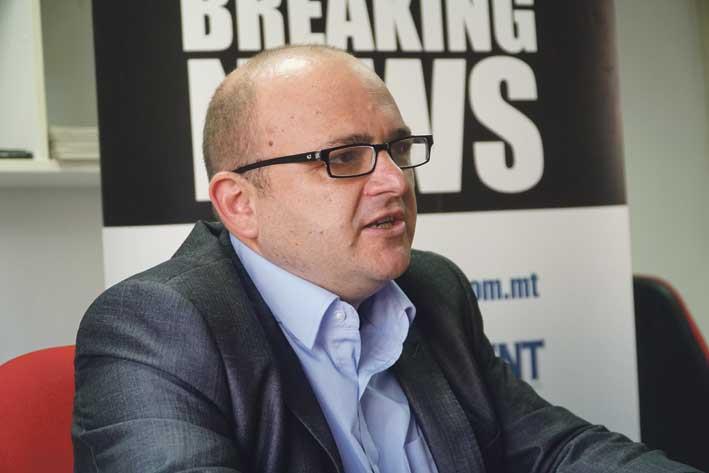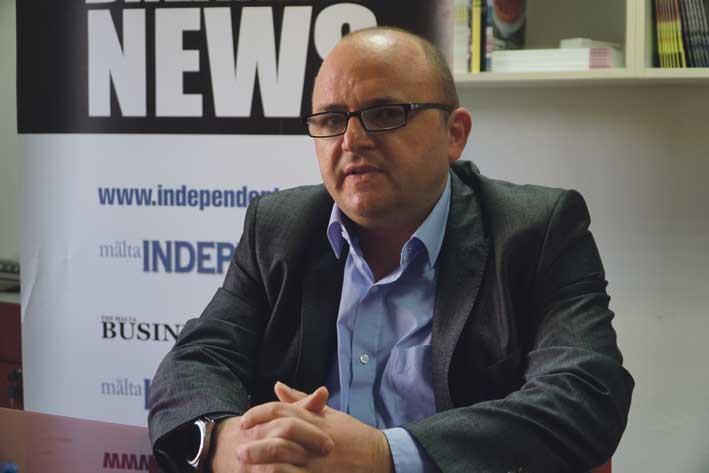Corporate ID Group recently announced that ‘Advocacy for Legacy’ will champion actions targeting those in danger of neglect - primarily children who are increasingly facing challenging situations resulting from inadequate upbringing as a result of economic pressures, substance abuse, and other difficult circumstances.
Jesmond Saliba said that he always believed that Corporate Social Responsibility (CSR) is a wide-ranging term, yet is so narrow in terms of application. “CSR is a company’s social role, working for the benefit of society. Advocacy goes beyond this, taking an issue, putting it on the national agenda and championing it. Legacy is about what we leave behind. The Corporate ID Group, which is a communications company and advisory services group, saw an important need in the country to help tackle child neglect.”
“Advocacy for Legacy will start as a forum championingthe wellbeing of society through a concerted effort by people from academia, industry players, NGOs and other players who seek to address societal ailments through a focused and well-researched approach,” he said.
“I am the president of the Malta Volleyball Association, and I used to go visit schools with the coach of the national team to promote the game. I began noticing aspects of child neglect. Not visually seeing the kids in neglect, but hearing just how much more educators provide beyond the teaching aspect, to assist kids who, for various reasons, are neglected,” Saliba said.

“Neglect is not specific to a locality or to an economic class. It is wide-ranging and there is no stereotyping. In these visits, the messages the President of Malta Marie Louis ColeiroPreca would pass on through her speeches began to resonate in my mind.”
Saliba told this newsroom that he spoke to a number of people, all of whom said they supported his idea. “Currently there are around 147 people who want to help out through this project.”
“Children’s voices are being heard in the country, but are not loud enough. The country’s national agenda is often hijacked by political debate and controversy. There are various groups of activists who engage through activism in pushing the agenda forward, but this important cohort of society, children, are nearly nowhere to be seen on the agenda. The primary activist for children’s issues and concerns is the President of Malta, and she was one of the people I spoke to about my dream. She gave me her full support and endorsement.”
“I also spoke with the Prime Minister Joseph Muscat and the PN spokesperson for Children Claudio Grech informally, and put their minds at rest that this is an initiative which rises above party politics, as we cannot afford putting the interests of this cohort of society at risk because of the tribal mentality with which we approach politics. I am committed to the cause and to being a voice for children who are at risk.”

The idea behind Advocacy for Legacy, is to synergise already existing institutions to work together. These include the corporate world, the education sector, after school activities including sports clubs, scouts, church organisations etc. and state organisations, he said.
“We are bringing together the corporate world to invest in this initiative, and through those funds, we will engage through research done by academics to take preventative action empowering and equipping children with the necessary life-skills in the ever-changing society. The corporate world will also engage through employees, having another reason for employee engagement in the cause.”
“Every case of child neglect is an individual case. Neglect is a wide-ranging term, and is the ongoing failure to meet a child’s basic needs. I’ve seen children at schools asking heads to provide lunch for them as at home, their parents couldn’t provide. There is also the issue of care and attention, where some children do not receive affection at home. I am not blaming anyone for this situation, but we need to accept the fact that today, the notion of parenthood is more shared. Ideally a child receives a number of important elements at home, at school, from the grandparents and/or the third pillar, which are sports organisations, NGOs, voluntary organisations which cater for kids.”
“In the past, home was the main pillar with school complimenting it, yet today there are situations where this is reversed, or where home doesn’t compliment the situation at all.”
“Our first tangible project will deal with the third pillar – sports groups, voluntary organisations, church organisations, scouts etc – who are in touch with children after school and outside of home, empowering them to create a curriculum for their leaders, coaches and instructors going being the technical or specific insight they provide to children. For example, coaches will also provide a number of life skills and not just, for example, teach volleyball, and would be sensitive to issues which are the result of child neglect, guiding the children accordingly to the current state agencies where needed.”
“This will not replace any institution which exists, it is trying to synergise all the efforts so that future generations will be equipped to deal with challenges.”
He said that he is in touch with foreign institutions for them to try and provide training.
“Children look up to their sports coaches and leaders, they are their role models. We want to help in the creation of societal role models, who would be able to guide children, empowering anyone who is in touch with children with the relevant parenting skills.”
He explained that the biggest issue in Malta is tribalism and silo mentality, not just in politics. “We tend to look at our patch. Few people look at the bigger picture. Looking at the bigger picture is important and in this specific case, there is a lot of work being done but not publicised by the education sector. There are a lot of teachers, in my personal experience from what I witnessed, go the extra mile, especially at primary school level. Children then go home or to their grandparents and then to after school activities.”
It is within this context that the synergising of the teaching of life skills beyond school, to other sections of society who deal with children, is crucial, he said.
He explained that funds invested by the corporate world in Advocacy for Legacy, will be used to engage with NGOs and voluntary organisations who will partner with Advocacy for Legacy in its initiatives.
Saliba is also a board member on Dar tal-Providenza, and he will remain involved there. He said that he will ask the voluntary and NGOs who benefit from the aforementioned funds so that in return for the support they receive from Advocacy for Legacy, they also fundraise for Dar tal-Providenza for another project he has in mind, linked to children. The project would be linked to residences in the community, and child support.